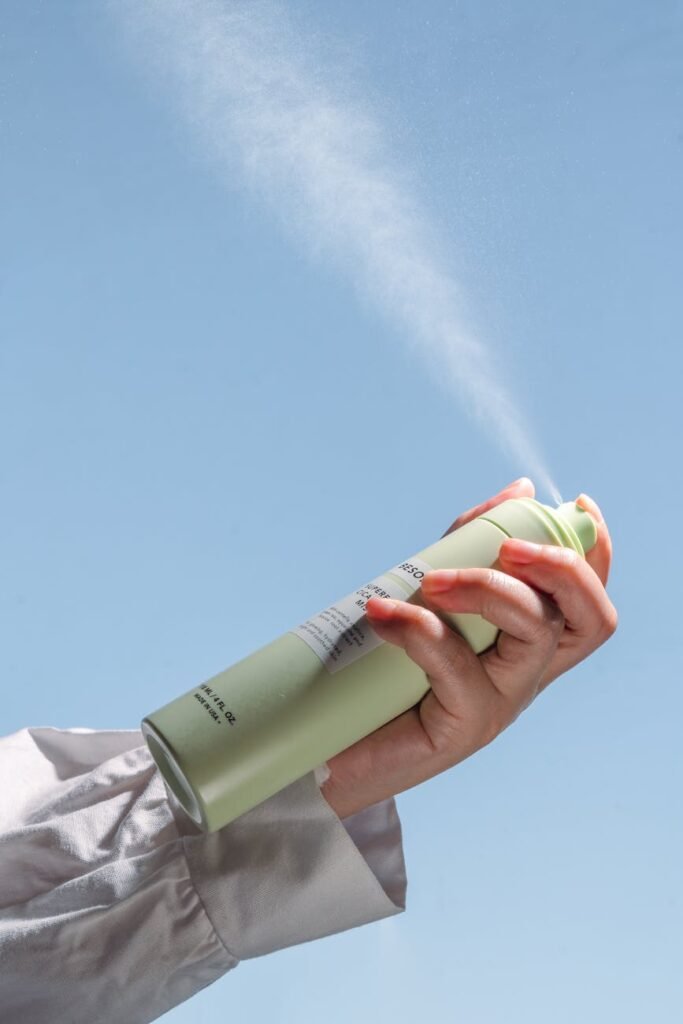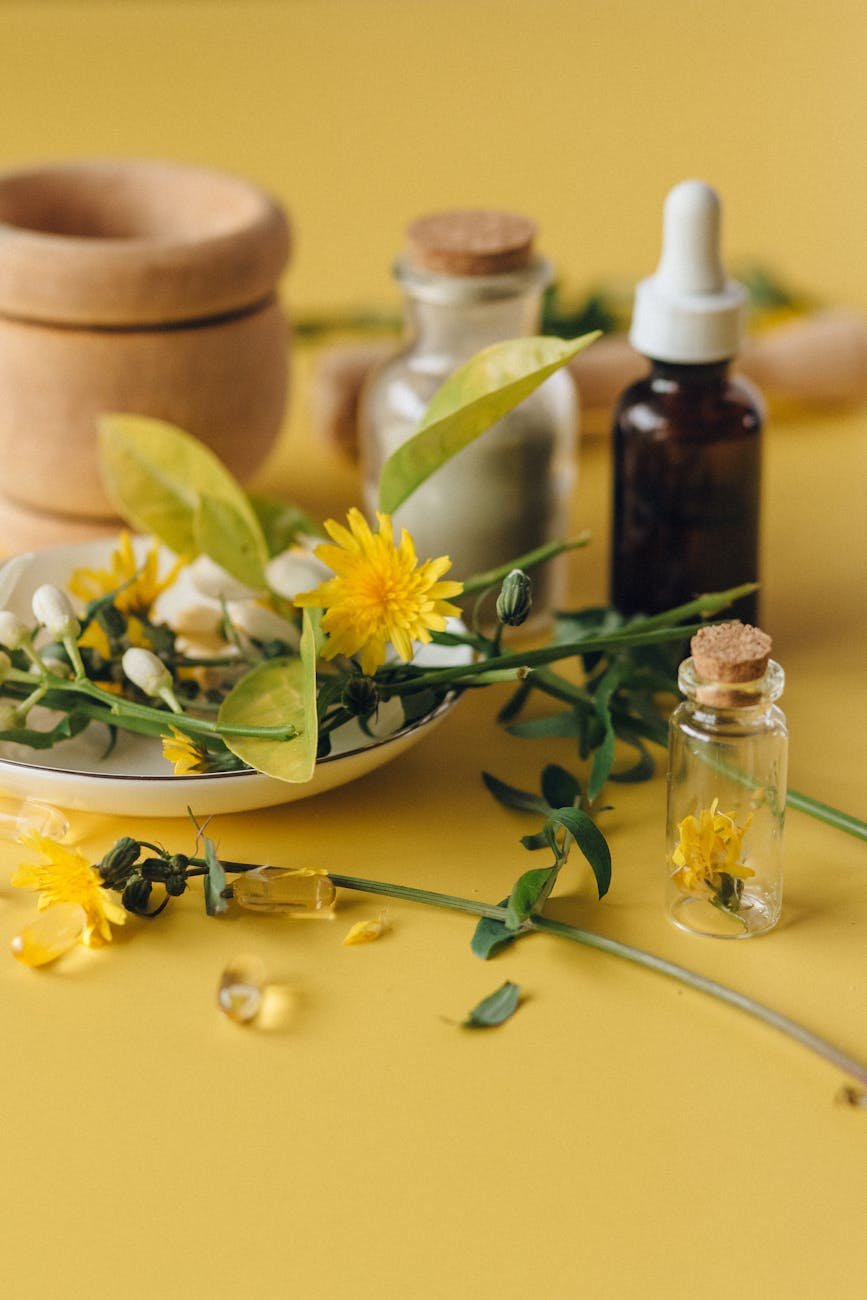Discovering the Magic of Essential Oils for Body Odor
If you’ve ever felt like your body odor is a little less than stellar, you’re not alone. Many people struggle with finding natural ways to combat unwanted smells. Thankfully, essential oils like tea tree and lavender are here to save the day! These little bottles of magic have been touted for their aromatic and antibacterial properties, making them strong contenders in the battle against body odor. So, let’s dive into how these oils work and whether they can be your new secret weapon for freshness.
Tea Tree Oil: The Natural Antibacterial Powerhouse
Tea tree oil is more than just a trendy ingredient in your skincare routine; it’s a powerhouse when it comes to neutralizing body odor. This essential oil is renowned for its antibacterial properties. When applied to your skin, it helps kill the bacteria that cause bad smells. Imagine it like a little army of soldiers, marching in to fight off the odor-causing germs!
You might be wondering how to use tea tree oil effectively. It’s quite simple! You can dilute a few drops of tea tree oil with a carrier oil, like coconut or jojoba oil. Apply this mixture to your underarms or other problem areas. Not only will you get a fresh scent, but you’ll also benefit from its antimicrobial action. This means fewer bacteria and less odor—sounds like a win-win!
Lavender Oil: More Than Just a Relaxing Scent
Lavender oil is often associated with relaxation and stress relief, but it has more to offer than just a calming aroma. This essential oil also has antibacterial properties, though they might not be as potent as tea tree oil. Lavender oil can help reduce body odor by keeping bacteria at bay while also providing a gentle, soothing scent.
To use lavender oil for body odor, you can add a few drops to a carrier oil or even your regular body lotion. Apply it as you would any deodorant. Lavender oil is less intense than tea tree oil, making it a great choice for those with sensitive skin. Plus, the calming fragrance will make your daily routine feel like a mini spa session. Who wouldn’t want that?
Comparing the Two: Which Is Right for You?
When it comes to choosing between tea tree and lavender oil for neutralizing body odor, it really depends on what you’re looking for. If you need a powerful antibacterial effect, tea tree oil might be your best bet. Its strong action against bacteria makes it particularly effective at cutting through the toughest odors.
On the other hand, if you prefer a milder scent and a gentler approach, lavender oil is an excellent choice. It’s still effective at reducing bacteria, but with a more soothing fragrance that’s less intense. You can also combine these two oils for a balanced approach—just mix a few drops of each into your carrier oil for a powerhouse blend that covers all bases.
Herbal Solutions: Sage and Mint for Odor Control

Ever wished for a natural remedy to combat body odor without resorting to chemical-laden products? Look no further than your kitchen or garden! Herbal solutions like sage and mint offer a refreshing alternative for those seeking effective, natural ways to stay odor-free. Let’s explore how these versatile herbs can help you maintain freshness and embrace a more natural approach to personal care.
Sage: The Ancient Herb with Odor-Fighting Powers
Sage isn’t just a staple in your grandma’s stuffing; it’s also a fantastic herb for battling body odor. This ancient herb has been used for centuries for its medicinal properties, including its ability to neutralize odors. Sage contains compounds that help reduce sweat and eliminate bacteria, which are key culprits in unpleasant smells.
To harness sage’s odor-fighting magic, you can use it in a few different ways. One method is to brew a sage tea and use it as a natural body rinse. Simply steep fresh or dried sage leaves in hot water, let it cool, and then apply it to your skin. The tea’s natural astringent properties help tighten pores and reduce sweat production.
Another option is to create a sage-infused deodorant. You can mix sage essential oil with a carrier oil, such as coconut or almond oil. Apply this blend to your underarms or other areas prone to odor. Not only will you enjoy the herb’s fresh, earthy scent, but you’ll also benefit from its natural antibacterial properties.
Mint: A Cool and Refreshing Approach to Freshness
Mint isn’t just for mojitos or gum; it’s also a powerful herb for combating body odor. With its cool, invigorating scent and natural antibacterial properties, mint can be a game-changer in your quest for freshness. Mint helps to neutralize unpleasant smells while leaving you feeling refreshed and revitalized.
To use mint for odor control, start by making a mint infusion. Boil fresh mint leaves in water, then strain and let the liquid cool. You can use this minty water as a natural body spray or add it to your bath for an invigorating soak. The mint’s cooling effect can help soothe your skin while keeping odors at bay.
You can also incorporate mint into your daily routine by adding a few drops of mint essential oil to your homemade deodorant. Mix it with a carrier oil or blend it into a natural body powder. The mint’s refreshing scent will keep you feeling clean and energized throughout the day.
Combining Sage and Mint: The Ultimate Herbal Duo
Why settle for just one herb when you can combine the best of both worlds? Mixing sage and mint can give you a powerful herbal remedy for controlling body odor. This dynamic duo offers a blend of sage’s odor-neutralizing qualities and mint’s refreshing, cooling effect.
Creating a combined herbal solution is simple. Start by making infusions of both sage and mint. You can either mix these infusions directly or blend the essential oils of both herbs with a carrier oil. Apply this herbal blend to your skin or use it as a body spray. The result is a fragrant, effective solution that tackles body odor from multiple angles.
You can also experiment with different ratios to find the perfect balance for your personal preferences. Whether you prefer a stronger minty scent or a more subtle sage aroma, customizing your herbal blend allows you to tailor it to your needs. This personalized approach ensures that you stay fresh and confident all day long.
DIY Deodorants: Easy Recipes and Their Benefits

Ever wanted to skip the store-bought deodorants and whip up your own natural versions at home? You’re in for a treat! DIY deodorants are not only fun to make but also allow you to customize your scents and ingredients. Plus, they often avoid the harsh chemicals found in commercial products. Let’s dive into some easy DIY deodorant recipes and explore their benefits, so you can enjoy fresh and natural protection.
Basic Coconut Oil Deodorant: Simple and Effective
One of the easiest DIY deodorants you can make involves coconut oil. Coconut oil is a natural antibacterial agent that helps keep odors at bay. It’s also incredibly moisturizing, making it perfect for sensitive skin. Here’s a simple recipe to get you started:
Ingredients:
- 1/4 cup coconut oil
- 1/4 cup baking soda
- 1/4 cup cornstarch (or arrowroot powder)
- 10-15 drops essential oil (like lavender, tea tree, or peppermint)
Instructions:
- Melt the coconut oil in a bowl (you can use a double boiler for this).
- Mix in the baking soda and cornstarch until smooth.
- Add your chosen essential oil for fragrance.
- Pour the mixture into a clean container and let it set.
This basic recipe creates a creamy deodorant that you can apply with your fingers or a spatula. The baking soda helps neutralize odors, while the coconut oil moisturizes your skin and keeps it soft. Plus, you get to choose your favorite essential oil scent!
Shea Butter and Beeswax Deodorant: Nourishing and Protective
For those who prefer a more solid stick deodorant, this recipe using shea butter and beeswax is a great option. Shea butter is incredibly nourishing and perfect for dry skin, while beeswax provides a solid texture that’s easy to apply. Here’s how to make it:
Ingredients:
- 2 tablespoons shea butter
- 2 tablespoons beeswax pellets
- 2 tablespoons coconut oil
- 1 tablespoon baking soda
- 1 tablespoon cornstarch
- 10-15 drops essential oil (like eucalyptus, rosemary, or sandalwood)
Instructions:
- Melt the shea butter, beeswax, and coconut oil together in a double boiler.
- Remove from heat and stir in the baking soda and cornstarch.
- Add essential oil and mix well.
- Pour the mixture into an empty deodorant stick container and let it cool.
This recipe results in a firmer, more solid deodorant that glides on smoothly. The beeswax helps the deodorant stay solid at room temperature, while the shea butter and coconut oil nourish your skin. It’s a fantastic option if you prefer a more traditional stick format!
Aloe Vera and Vitamin E Deodorant: Soothing and Healing
If you’re looking for a deodorant that offers soothing and healing benefits, try this aloe vera and vitamin E recipe. Aloe vera is known for its skin-soothing properties, while vitamin E helps to heal and protect your skin. Here’s a recipe to try:
Ingredients:
- 1/4 cup aloe vera gel
- 1/4 cup coconut oil
- 2 tablespoons baking soda
- 2 tablespoons arrowroot powder (or cornstarch)
- 10-15 drops essential oil (like chamomile, lavender, or citrus)
Instructions:
- Mix the aloe vera gel and coconut oil until smooth.
- Stir in the baking soda and arrowroot powder until well combined.
- Add your essential oil and mix thoroughly.
- Transfer the mixture into a jar or container and store it in the fridge to keep it firm.
This deodorant has a lighter, gel-like texture that feels refreshing and cooling on your skin. Aloe vera helps soothe any irritation, while vitamin E supports skin health. It’s a great option for those with sensitive skin or anyone looking for a gentle, hydrating deodorant.
Benefits of DIY Deodorants: Freshness with a Personal Touch
Creating your own deodorants has several benefits beyond just avoiding chemicals. First, you have complete control over the ingredients, so you can avoid allergens or irritants that might be present in commercial products. DIY deodorants are also eco-friendly, reducing the need for single-use plastic containers. Plus, making your own deodorant can be a fun and satisfying experience!
You also get to experiment with different scents and textures to find what works best for you. Whether you prefer a creamy coconut oil base or a solid beeswax stick, there’s a DIY recipe to suit your needs. And by using natural ingredients like essential oils, you’ll enjoy a fresh and pleasant scent without the worry of synthetic fragrances.
Lifestyle Adjustments: Boost Natural Remedies for Better Odor Control

Natural remedies for body odor are fantastic, but did you know that lifestyle adjustments can enhance their effectiveness? Combining these remedies with some simple lifestyle changes can make a world of difference. Let’s explore how small tweaks in your daily routine can complement your natural odor-fighting strategies and help you stay fresh and confident all day long.
Stay Hydrated: The Power of Water for Odor Control
Drinking plenty of water is one of the easiest lifestyle changes you can make to improve your body odor. Water helps flush toxins out of your system, reducing the load on your sweat glands. This means less opportunity for odor-causing bacteria to thrive. Staying well-hydrated also helps maintain healthy skin, which is crucial for effective natural odor control.
Aim for at least eight glasses of water a day, and remember to increase your intake if you’re active or in hot weather. If you find plain water a bit boring, add slices of lemon, cucumber, or mint to infuse some flavor. Your body will thank you, and you’ll feel more refreshed!
Choose Breathable Fabrics: Keep Your Skin Fresh and Dry
The clothes you wear can significantly impact body odor. Opt for breathable fabrics like cotton, linen, and moisture-wicking materials. These fabrics allow air to circulate and help keep sweat from getting trapped close to your skin. Trapped sweat can lead to bacterial growth, which is a major contributor to unpleasant odors.
Avoid synthetic fabrics like polyester that can trap heat and moisture. Instead, choose natural fibers that help your skin breathe and stay dry. Also, make sure to change into fresh clothes if you’ve been sweating heavily, especially after workouts. This simple habit can make a huge difference in how fresh you feel.
Maintain a Balanced Diet: Eat Your Way to Freshness
What you eat plays a significant role in how you smell. A balanced diet rich in fruits, vegetables, and whole grains can help reduce body odor. Foods like apples, carrots, and leafy greens can naturally neutralize body odors. On the other hand, strong-smelling foods like garlic, onions, and spicy dishes can contribute to more intense body odors.
Incorporate foods high in antioxidants, such as berries and citrus fruits, to support your body’s detoxification processes. And don’t forget to include probiotics in your diet. Yogurt, kefir, and fermented foods can improve gut health, which might help in reducing overall body odor. A healthy diet not only benefits your body but also enhances the effectiveness of natural deodorants.
Practice Good Hygiene: Essential for Odor Management
Even with the best natural remedies, maintaining good hygiene is essential for odor control. Regular bathing or showering helps remove sweat and bacteria from your skin. Use a gentle, natural soap or body wash that suits your skin type to avoid irritation. Pay special attention to areas prone to sweating, like your underarms and feet.
Also, make sure to exfoliate your skin once a week. Exfoliation helps remove dead skin cells that can harbor bacteria and contribute to body odor. It’s a simple step that complements your natural deodorant use and keeps your skin feeling clean and fresh.
Get Enough Sleep: Recharge and Refresh
Believe it or not, getting a good night’s sleep can impact your body odor. When you’re well-rested, your body functions more efficiently, including your sweat glands. Lack of sleep can disrupt your hormonal balance and potentially lead to increased sweating or stronger body odor.
Aim for 7-9 hours of quality sleep each night to keep your body functioning optimally. Create a relaxing bedtime routine, such as reading a book or practicing deep breathing exercises, to improve your sleep quality. A well-rested body is more balanced and better equipped to manage body odor naturally.
Manage Stress: Keep Calm and Smell Fresh
Stress can affect your body in many ways, including increasing sweat production and altering your body odor. When you’re stressed, your body releases more of the apocrine sweat that bacteria love to feast on. Managing stress is therefore a key component of controlling body odor.
Incorporate stress-reducing activities into your daily routine. Try yoga, meditation, or even just a short walk in nature to help keep stress levels in check. Finding healthy ways to manage stress not only benefits your overall well-being but also helps keep your body odor under control.
